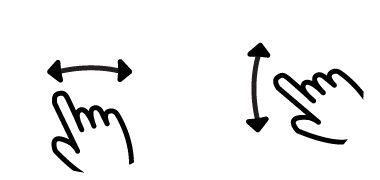In this episode you will learn the following:
- All about the menstrual cycle length, including how a cycle length is calculated in days, how many women really have the text book average 28-day cycle, the length of shorter and longer cycles, cycle length ranges considered normal and when it is advised to speak to your doctor or health care professional about lengths outside of the normal range.
- What happens during a typical cycle.
- How the menstrual cycle can be described as changes that occur in the uterus or changes that occur in the ovary.
- The three phases of the ovarian cycle and what happens during each phase.
- The three phases of the uterine cycle and what happens during each phase.
- How knowing this can help you get pregnant faster.
About this Series
Dr Tash, leading fertility & pregnancy expert explains how to get pregnant. 1 in 6 couples struggle with getting pregnant after 12 months, this series digs deep in to how you can get pregnant naturally. Sperm and egg must meet within a small 12-24 hour window within the menstrual cycle. You will learn how you can maximize your chances of conceiving and increase your chances of getting pregnant faster.
Ovulation Calculator has produced this video series with leading fertility expert, Dr Natasha Andreadis (Dr Tash).
Embed This Video
Video Transcript
I'm Dr. Tash. Let's talk about the menstrual cycle and what happens with each phase.
The menstrual cycle occurs for one reason only, and that's for pregnancy to occur. It means that an egg has to be released to meet a sperm so an embryo is made and hence implanted. And hopefully, a pregnancy occurs.
When we talk about a menstrual cycle, we talk about the length, or the time between day one of bleeding to the day just before the next bleed. We call that a cycle.
Now, typically, only about 15% of women have an average 28-day cycle. Many women can have a 21-day cycle or an up to 35-day cycle. If your cycle is shorter than 21 days or longer than 35 days, you should probably be speaking to your doctor.
However, if you have a cycle that's anywhere between that range, this is generally what happens during that cycle.
When we're talking about the menstrual cycle, it's important to realize that the ovary speaks to the lining of the uterus, the endometrium. Here we've got a model of a uterus and an ovary.
At the level of the ovary, there are three phases.
The first phase is what we call the follicular phase, when follicles develop.
The second phase is ovulation, when a follicle goes "pop" and an egg is released into the Fallopian tube.
The third phase is called the corpus luteal phase, or the luteal phase, where a very important organ called the corpus luteum is made to pump out lots of hormones that actually support a pregnancy.
At the same time that the ovary is going through its phases, the endometrium, the lining of the uterus, is doing its own thing as well. And it too goes through three phases.
The first phase is menstruation, when you've got a period.
The second phase is what we call the proliferative phase, when there is the growth of the lining of the uterus.
And then there is the secretory phase, which is when there's active activity to help that lining become very receptive to a pregnancy.
Knowing the menstrual cycle and the phases that are involved means that you'll have a lot more knowledge, and hence power, to fall pregnant. You'll be able to actually have sex at the right time to maximize your chances of falling pregnant.







